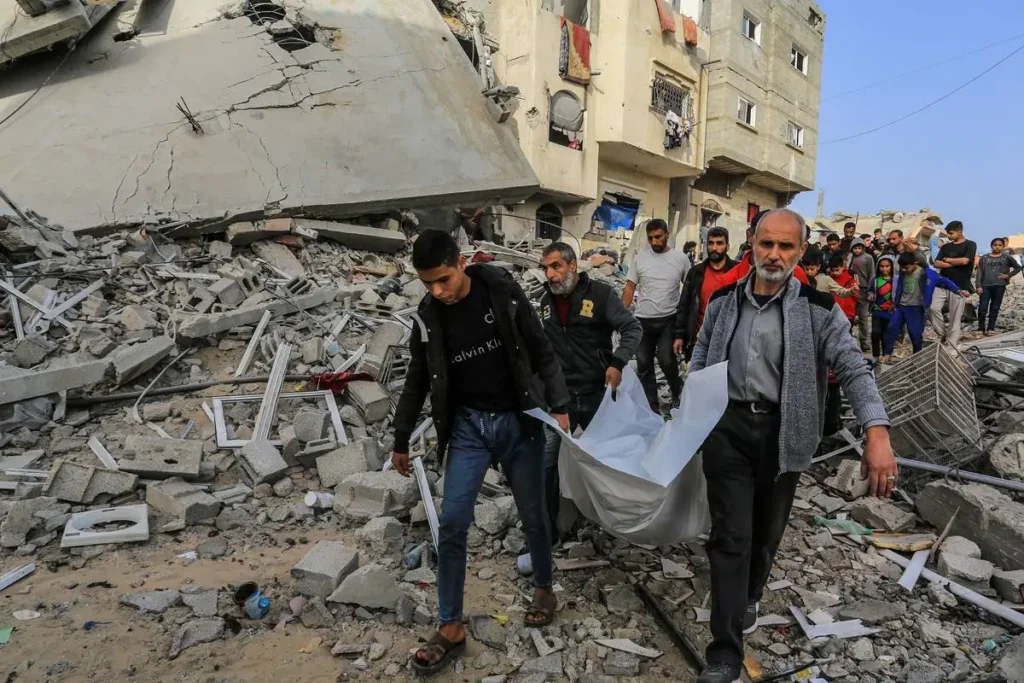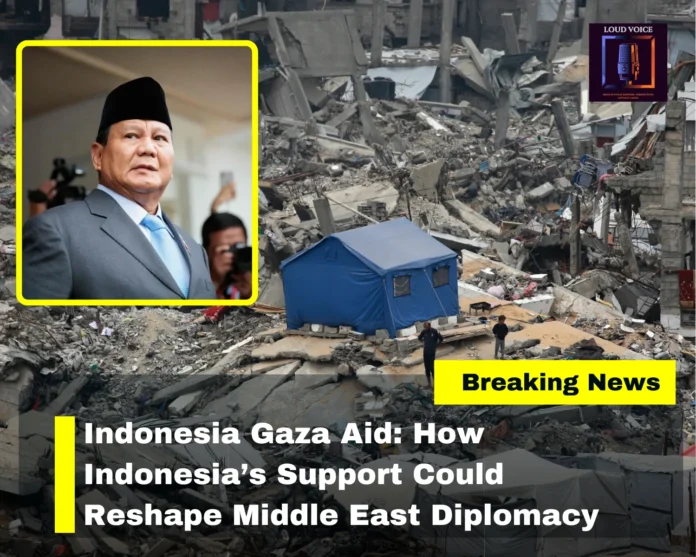Indonesia Gaza Aid: Introduction
Indonesia Gaza Aid has taken on a new dimension, evolving beyond a humanitarian effort into a potential diplomatic game-changer. As the crisis in Gaza deepens, Indonesia has stepped up with a bold offer—to shelter displaced Palestinians, including orphans and the wounded, in a gesture that blends compassion with geopolitical strategy.
President Indonesia Gaza Aid, Middle East diplomacy, Prabowo Subianto, Gaza evacuation, Palestinian refugees, Indonesia foreign policy, humanitarian aid, Muslim world solidarity, Southeast Asia diplomacy, Middle East peace, Indonesia international relations, Gaza crisis, soft power diplomacy’s announcement this week has cast Indonesia in a new light—not just as a concerned observer, but as a proactive regional actor willing to shoulder responsibility in the pursuit of peace and stability.
A Nation Stepping Into the Diplomatic Spotlight
In a statement delivered before embarking on a diplomatic tour across the Middle East, President Subianto declared Indonesia’s readiness to evacuate around 1,000 Palestinians from Gaza. These individuals would receive medical care, trauma support, and shelter in Indonesia, staying until conditions in Gaza allow for a safe return.
The plan includes dispatching planes to evacuate those in need, a move that highlights Indonesia’s logistical capability and political will in responding to humanitarian emergencies.
Beyond Aid: A Strategic Foreign Policy Shift
While humanitarian in nature, this initiative is also being seen as part of a broader foreign policy recalibration. As the world’s largest Muslim-majority democracy, Indonesia has long supported Palestinian self-determination. However, this move signals a transition from moral support to active intervention.
President Subianto emphasized that the Foreign Affairs Ministry had been directed to engage with Palestinian authorities immediately, ensuring coordination on all fronts. This decision, he added, was driven not only by empathy but also by external encouragement—several countries have called upon Indonesia to take a stronger role in resolving the Gaza conflict.

Regional Tour: Building Consensus Across Key Players
Subianto left for a week-long Middle East tour shortly after the announcement was made, stopping in Abu Dhabi, Turkey, Egypt, Qatar, and Jordan. These nations are important actors in the Arab world and the current Gaza diplomacy.
The timing of this tour suggests a strategic intention: to foster diplomatic alignment and explore partnerships that could strengthen Indonesia’s credibility and influence as a neutral facilitator in regional affairs.
Indonesia’s Emerging Soft Power Strategy
By offering refuge to Palestinians, Indonesia is not only addressing an urgent humanitarian crisis but also reinforcing its image as a benevolent and peace-oriented nation. This move could serve to increase Indonesia’s soft power footprint, especially among OIC (Organization of Islamic Cooperation) nations.
Moreover, the gesture may open up new channels of bilateral and multilateral diplomacy, with Jakarta positioned as a reliable, non-aligned partner willing to engage constructively.
Domestic and Global Reactions
Domestically, Subianto’s announcement has garnered widespread approval across political lines, reinforcing national pride in Indonesia’s long-standing solidarity with the Palestinian people.
Internationally, the initiative has prompted praise from humanitarian groups and observers who see in it the potential for moral leadership in a region often dominated by hard power politics.
A Blueprint for Broader Peacebuilding?
The Indonesia Gaza Aid initiative might be just the beginning. Analysts speculate that if Indonesia succeeds in evacuating and housing Palestinian civilians, it could leverage that success to build bridges between conflicting parties and serve as a neutral facilitator in broader peace talks.
While Subianto admitted that the situation in Gaza is “complicated” and far from easy to resolve, he also noted that such complexity only motivates Indonesia to become more actively involved.
Conclusion: A Humanitarian Gesture with Diplomatic Ripple Effects
The decision to offer sanctuary to Palestinians marks a potential turning point in Indonesia’s foreign policy, signaling its aspiration to play a more prominent role in international diplomacy, particularly in the Middle East.
As the Indonesia Gaza Aid mission unfolds, it may well reshape how the world views Jakarta—not just as a distant supporter of peace, but as a diplomatic force willing to act when others hesitate.


